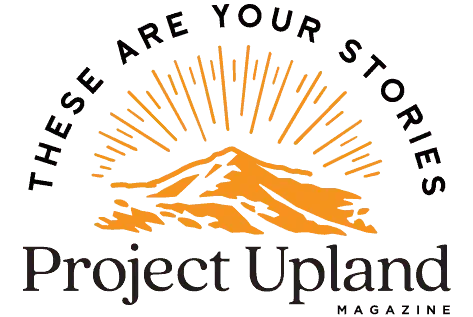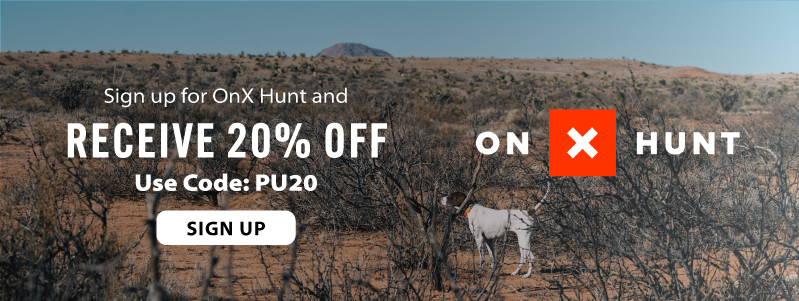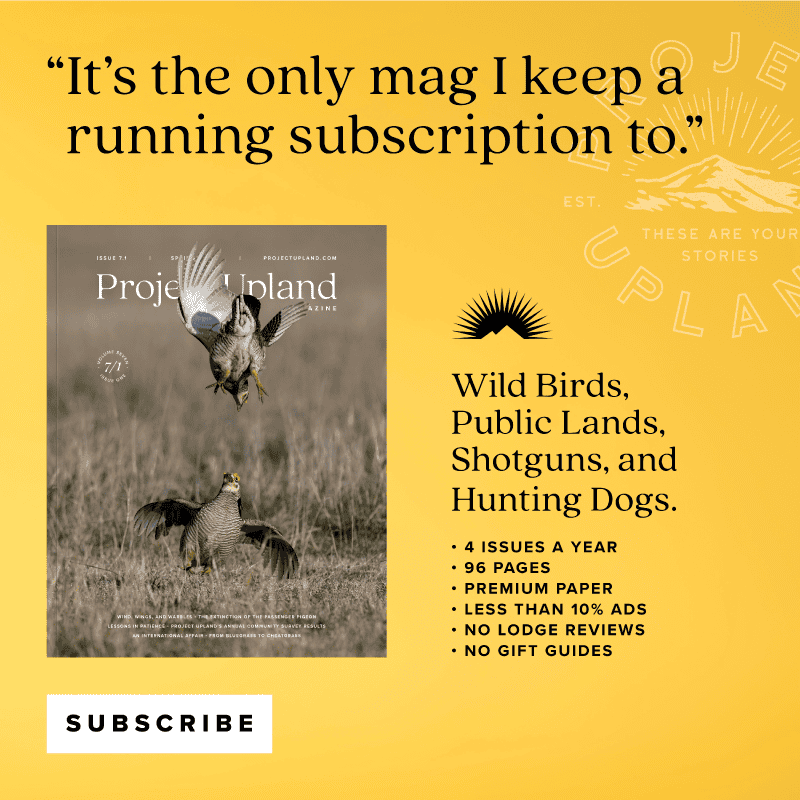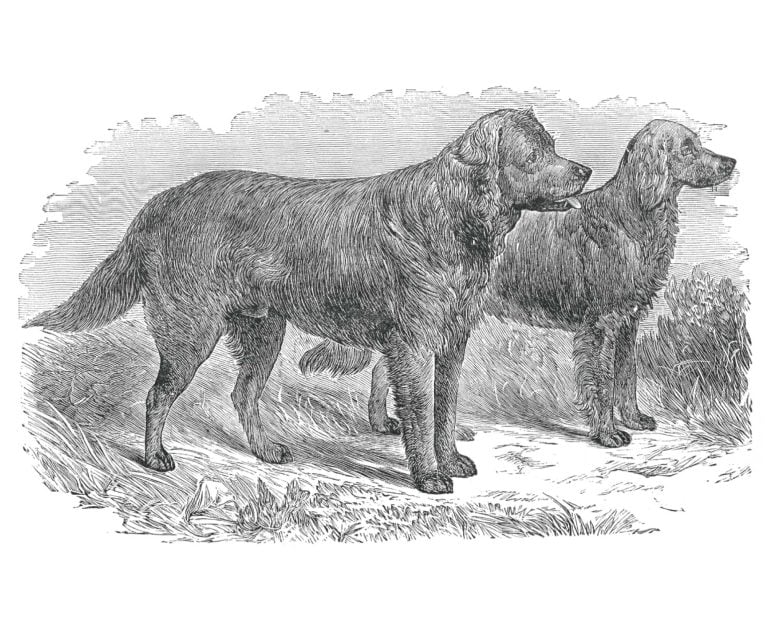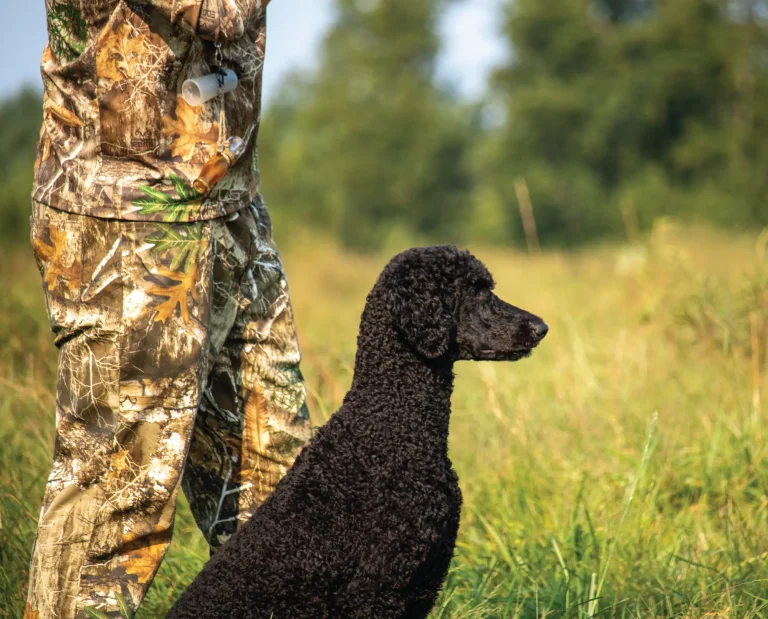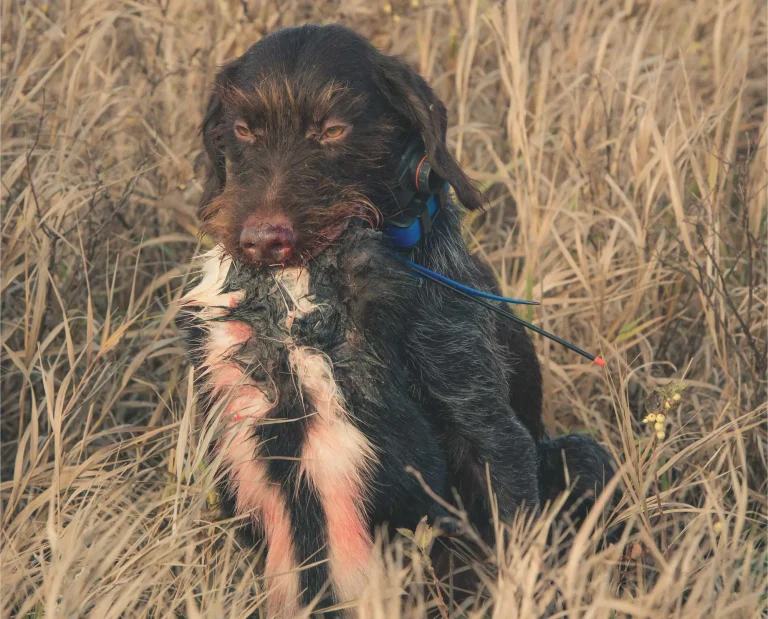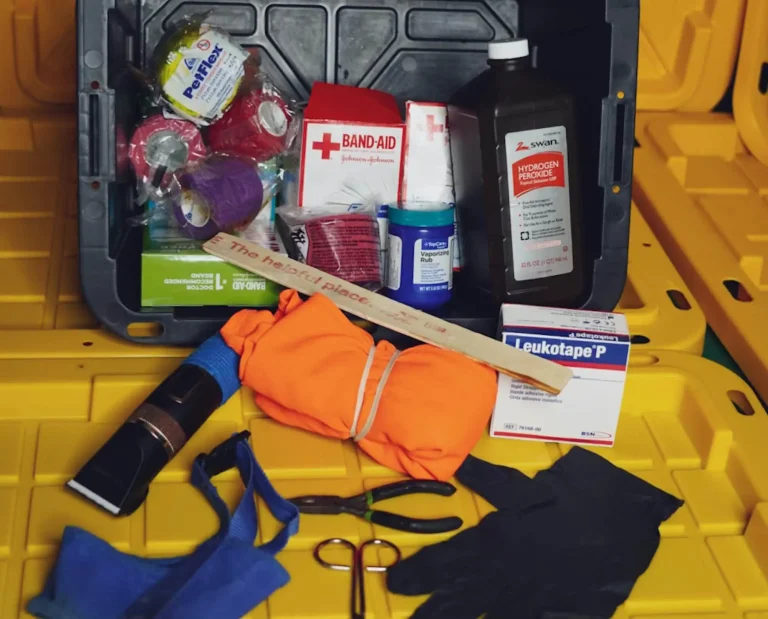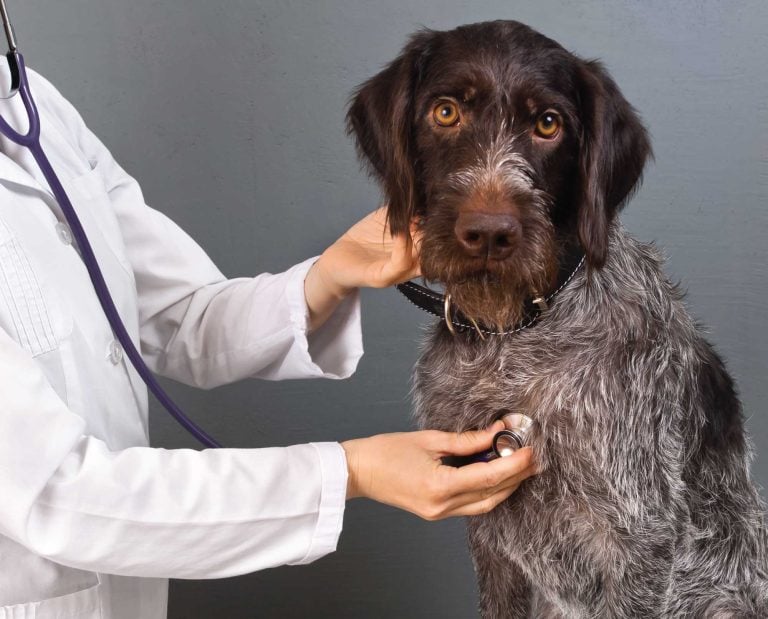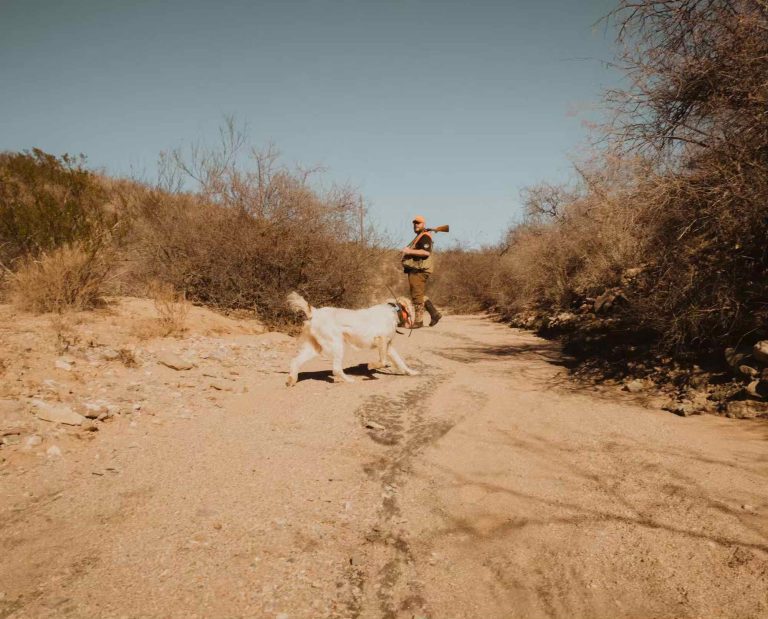The Reasons to Consider a Versatile Hunting Dog

The author explores all the parts in between upland game that make a true versatile hunting dog
We were searching for late season roosters on a frosty, foggy afternoon. Scratchy calls echoed around us, but the fog was disorienting and challenged any sense of direction or distance. It became clear that any success was going to depend on equal parts of luck and skill.
Suddenly the pup went on a hard point at the edge of the cattails and my heart began to pound. The marsh was thick with grasses and I hoped that the rooster would have a hard time running ahead of us. I charged into the cover with confidence, but I was immediately stopped by the impenetrable wall of cattails. I glanced back and saw that Piper, my Deutsch Langhaar, was still holding point. Realizing that I wasn’t going to make any progress through the tangle of brush, I released her and hoped she’d get the bird to take wing. She relocated a short distance and locked up again, focused on the ground right in between us.
You’re kidding, I thought. There’s no chance that a rooster is sitting there while we’re crashing around like this. But if nothing else, I’ve learned to always trust the dog.
On a second release, Piper pounced into the grass and started to dig. A few moments later, she emerged with a huge drake Mallard – freshly shot and still warm under his feathers. She proudly presented it to me and I admired the gorgeous bird before putting it in my vest. With this discovery, it was now official – the pup had found more of her own wild birds this season than I had successfully shot over her. Maybe she didn’t need me after all.
I knew that having a well-trained, versatile dog would improve our game recovery rate, which was one of the many reasons we’d decided to get a bird dog in the first place. I understood this from firsthand experience: I clearly remember shooting a duck in my first season and, after an hour of searching the reeds, I finally had to resign myself to empty-handed defeat. It stung to know that I’d taken a life and let it go to waste. I became hesitant to pull the trigger after that experience, being deeply afraid of another senseless waste.
But despite knowing that a dog would assist in my own bird recoveries, I had no idea how many birds we’d find that had been left behind by other hunters. In this past season alone, the pup found a couple of ring-necked pheasant, a few mallards, and a snow goose – all either fatally wounded or freshly killed – and thankfully prevented from unnecessary suffering or waste. To me, that’s true versatility: bringing home game regardless of the circumstances.
Read: A Introduction to Jump Shooting Ducks on Upland Hunts
Training for better conservation
Like most versatile hunting dogs, Piper came pre-programmed with a strong, natural retrieving instinct. To build on this, we worked hard to ensure that she was trained to understand the retrieve as a responsibility to bring any and all “treasures” back to us. This meant that we were often the proud recipients of disgusting, mostly-decomposed animal carcasses. We received these with a huge smile and praise for the pup before discreetly jettisoning the carcasses into the brush.
Force fetching can be a subject of controversy and sometimes misunderstanding. We took steps to force fetch the pup in accordance with her temperament; she required a lot of positive reinforcement and very light (but consistent) correction. This took no less than an entire wheel of cheese, much to the delight of the young pup and discerning cheese enthusiast. It’s not inaccurate to say we erred on the side of positive reinforcement before rounding out the lessons with necessary corrections. Our efforts resulted in a dog that fully understood that retrieving is a job that must always be performed regardless of the situation. All dogs are different and therefore must be trained with an individual approach. For us, a gentle but firm approach to force fetching was essential to complete her training as a true versatile hunting dog.
We continue to build on this training with regular games and exercises. Hiding items in the yard, shed hunting for antlers, and doing rabbit drags all build on this idea of “find the good stuff and bring it back to me.” It’s a great way to reinforce the retrieving concept while keeping it lighthearted and fun. It certainly pays off when it’s time to hit the uplands in the fall.
Versatility beyond birds
Since our pup is from the German versatile hunting dog system, we’ve come to understand the extraordinary importance that the Germans place on a dog’s work after the shot. It wouldn’t be exaggeration to say that this is even more important than the work done before the shot. There’s an intense focus on game recovery of all kinds.
The German testing system reinforces this priority with an emphasis on game recovery. A dog immediately fails a test if he or she ever leaves edible game in the field. We’ve trained hard for furred animal drags and blood tracking in addition to bird work, with the idea that the dog should be able to track down any wounded animal and make a successful recovery.
By contrast, blood tracking for mammals has been a controversial subject in the U.S. Many states still do not allow the use of dogs in deer hunting – understandably, the intent is to prevent the running of deer with packs of dogs. However, the use of a leashed dog in blood tracking is a valuable asset for conservation. In parts of Europe, it’s actually required that a hunter have access to a tracking dog so that any shot animal can be successfully located and collected.
Training our versatile dog for blood tracking has been a rewarding and fun experience for dog and handler alike. It’s another new skill to build and fun game to play. The ultimate goal is increased versatility and better game conservation.
It’s fair to say that I never expected to be calling around to local butcher shops and asking about buckets of blood. I also never expected to raise a flock of pigeons, nor place a mail order for frozen rabbits, nor devote refrigerator space to thawing ducks. But when I think back to that lost duck in the marsh, I’m determined to be a better hunter by ensuring that I have a way to recover any animals that I wound or kill. For me, that answer is a well-trained, versatile dog that accompanies me into the field and finds all the game she possibly can find. She’s my conservation ally and ultimately, my confidence in pulling the trigger.
